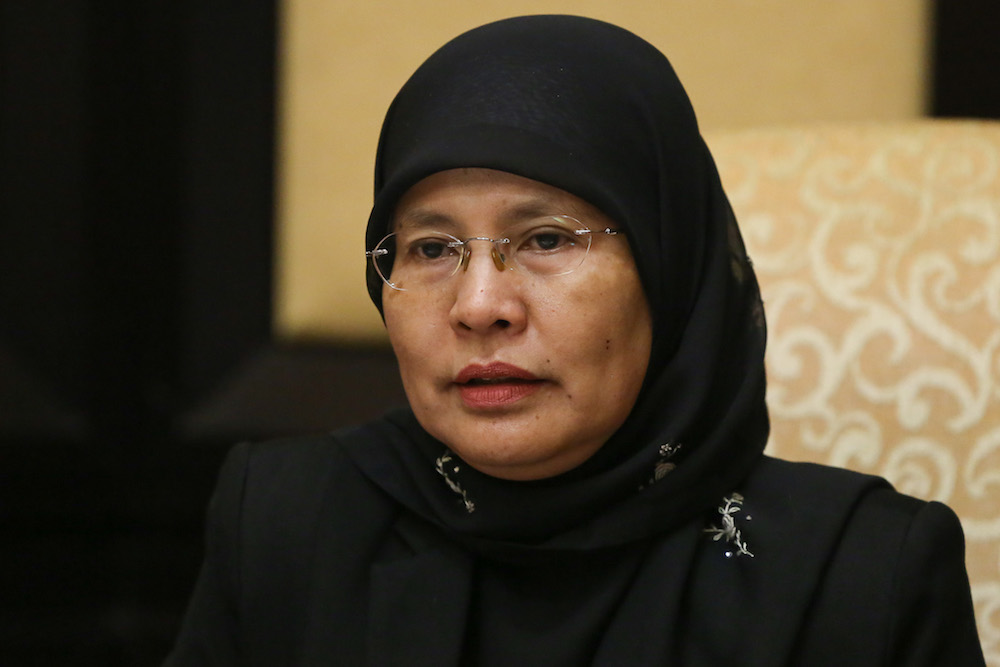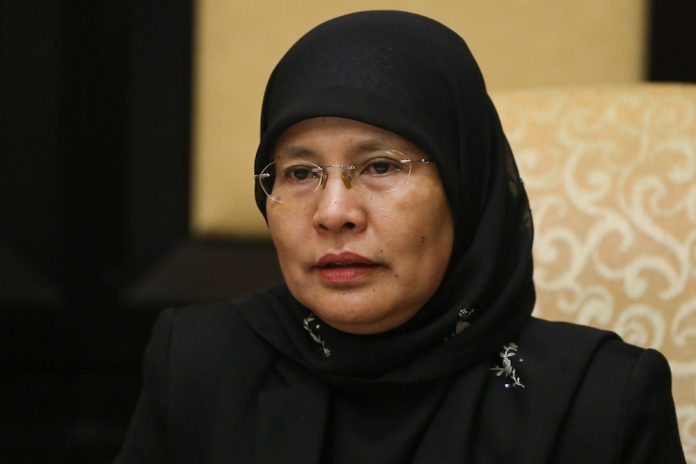
PUTRAJAYA, Dec 1 — The judicial decisions of two former top judges, whose appointments as additional judges were challenged, remain protected by the “de facto doctrine”, the Federal Court ruled today.
Chief Justice Tun Tengku Maimun Tuan Mat, who chaired a five-member bench, said that even if the court were to accept the argument that the appointments of former Chief Justice Tun Md Raus Sharif and former Court of Appeal President Tan Sri Zulkefli Ahmad Makinudin were unlawful, their judicial decisions would continue to stand by virtue of the de facto doctrine.
The definition for the de facto doctrine states that it validates, on grounds of public policy and prevention of a failure of public justice, the acts of an official who functions under colour of law even though it is later discovered that the legality of that person’s appointment or election to office is deficient.
Justice Tengku Maimun said the de facto doctrine exists to preserve the integrity of judicial decisions and insulates a judge’s decisions from collateral attack.
“Otherwise, unsuccessful private litigants will reserve the point as an ammunition to attack the judge’s lack of authority as a ground to re-litigate their case or to have the outcome changed for the reason that the judge who heard their case was no judge at all,” she said in her 46-page judgment delivered yesterday.
Justice Tengku Maimun said that by doing so would be to put the prestige and integrity of justice and the justice system into jeopardy and disrepute.
She said that even if a judge’s appointment is set aside de jure, all decisions made by him (or her) either judicially or administratively are saved.
The danger the de facto doctrine sought to avoid is the chaos and confusion that may be occasioned in the event the appointment of a decision-maker is found to be invalid and the stain that it may leave on the administration of justice, she said.
In unanimously dismissing seven review motions with costs, Justice Tengku Maimun said the specific points alleging coram failure, breach of natural justice, or general injustice in the respective sets of motions, are without merit.
“It is our considered view that the applicants are not entitled to collaterally challenge the validity of the appointments of the two judges through these review motions,” she said.
Besides Justice Tengku Maimun, the other judges on the panel were Federal Court judges Datuk Zabariah Yusof, Datuk Hasnah Mohammed Hashim, Datuk Harmindar Singh Dhaliwal and Datuk Rhodzariah Bujang.
The panel heard the seven review motions on Aug 19 this year. The applicants wanted the adverse decisions made in their cases to be set aside and the appeals reheard.
One of the parties was a next-of-kin of passengers on Beijing-bound Flight MH370 that went missing in 2014. In November 2017, the then chief justice, Md Raus, who led a five-member panel, dismissed the appeals by the family of the victims to include Malaysia Airlines Bhd and the Royal Malaysian Air Force as parties to their suit.
The other applicants of the review motions included Yakin Tenggara Sdn Bhd, Datuk Lim Sue Beng, Tan Boon Lee, Yong Tshu Khin and Annie Quah Lay Nah.
The applicants’ main complaint was that the advice given by Raus’ predecessor Tun Arifin Zakaria to the Yang di-Pertuan Agong to appoint the two judges as additional judges of the Federal Court was invalid because such advice may only be given by a sitting chief justice to take effect during his tenure.
It was also argued that Raus was not entitled to enlist the Federal Court panels which heard the appeals and to sit in these cases.
On July 7, 2017, the government announced that Raus would remain in office for another three years from Aug 4, 2017, while Zulkefli would remain in his post for another two years from Sept 28, 2017. Both were supposed to go on mandatory retirement that year after reaching the age of 66.
Raus and Zulkefli submitted their letters of resignation to the Yang di-Pertuan Agong on June 7, 2018, and the Yang di-Pertuan Agong gave his assent to their resignation the following day.
In her judgment, Justice Tengku Maimun said the court disagreed with the applicants’ contention that the doctrine is only confined to subordinate officers and judicial arbiters and cannot be applied to superior court judges.
“It is our view that the de facto doctrine applies equally to constitutional appointments,” she said. — Bernama


